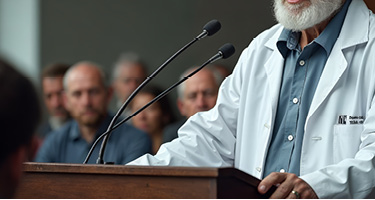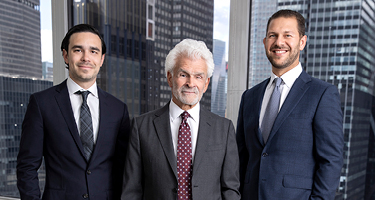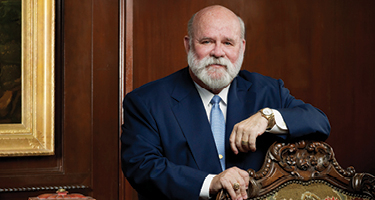Independent Medical Examinations (IMEs)—or, “additional medical examinations,” as they are now termed in Louisiana law—are part and parcel of the typical personal injury case these days. Under Louisiana’s Code of Civil Procedure Article 1464, when a party’s mental or physical condition is at issue, the court may order that party to submit to an additional medical opinion regarding physical or mental examination. Per the article, such an examination is allowed only for each field of specialty for the same injury, except for good cause shown why multiple examinations are warranted.
The article is rather open-ended, but does provide some safeguards when minors are involved. First, the minor may have a parent, tutor, or legal guardian present. If such a party cannot be present, the examination shall be videotaped at the expense of the party being examined.
THE PUSH TO PLACE ADDITIONAL RESTRICTIONS ON IMES
However, counsel for examinees have increasingly attempted to put in place extraordinary parameters on examining physicians or experts. They request limitations such as not being able to question the examinee regarding the incident occurrence or requiring the attendance of third parties at the examination itself. Examinees have also requested to limit the types of examiners to certain qualifications, such that the examiner would not be “more” believable than Plaintiff’s own treating provider. They will also attempt to have the examination video or audio taped, even when the examinee is not a minor. Counsel often file long, form Motions with the court requesting multiple “safeguards” or requirements not authorized by law, but which they claim are within the court’s broad discretion. Sometimes, these motions are successful, at least in part.
Such a request was before a trial court in Louisiana’s 19th Judicial District Court in Snapper Brown et al. v. Brennan Landry Moore et al., Docket #670,237. Defendants filed a discovery motion, part of which was to request a court-ordered additional medical examination. Defendants set forth that the adult Plaintiffs both claimed injury to their neck and back “despite the fact that this was a very minor impact with virtually no property damage.” In response to Defendants’ request for the examination, counsel for the Plaintiff had insisted that Plaintiff have a family member present during the examination and that the family member be allowed to record and/or video the examination.
In asking the court to deny these insisted-upon conditions of examination, Defendants cited to Henry v. Barlow, 06-283 (La. App. 3 Cir 08/09/2006), 937 So.2d 895, for the proposition that restrictions or condition upon an otherwise customary and reasonable examination are permitted only if the restrictions are reasonable and only if special circumstances requiring the restrictions are shown. In that case, the appellate court did allow the examinee’s wife to be present, due to his potentially suffering a cognitive impairment, but refused to allow his counsel to be present or to allow the examination to be videotaped. In that case, the appellate court noted:
Requiring the videotaping of an IME would restrict the number of physicians willing to conduct a videotaped IME under such circumstances. If the Defendant’s IME is allowed to be videotaped, then Defendant could urge that all of Plaintiff’s examinations be videotaped as well, and so forth and so on. That is neither the intent nor the spirit of La. Code Civ. P. art. 1464.
Id. at 898.
Despite this cited case from the neighboring Third Circuit Court of Appeals, the trial court in Baton Rouge issued a judgment allowing Plaintiffs to bring a third person into the examination and allowing Plaintiff to audio record the examination (striking out the portion allowing video recordation on the prepared judgment).
Defendants sought supervisory review from Louisiana’s First Circuit Court of Appeal in Brown v. Moore, 2020 CW 1285 (La. App. 1 Cir. 03/10/21). In this unpublished opinion, the majority of the Court’s five-judge panel reversed those portions of the trial court’s judgment allowing the presence of a third person at and the videotaping of the IME. The opinion did not provide any reasoning or offer more to provide guidance. There was one dissent on the panel, which was also very brief, stating only that the judge would have denied writs for failing to meet sufficient criteria to grant review.
EXPECT MORE LITIGATION IN LOUISIANA COURTS ON IMES
As an unpublished opinion without an in-depth discussion of the law and circumstances, this appellate decision of the First Circuit offers little guidance on future requests for IME limitations in Louisiana Courts. However, it is in line with at least the one case cited by Defendants in their opposition before the trial court. Furthermore, the Third Circuit opinion was well-reasoned and in line with what it termed the “intent and spirit” of Article 1464. But one published opinion and one unpublished reversal does not necessarily make a body of law that all courts will follow. In the coming months and years, there will likely be more litigation on this issue in Louisiana courts. Stay tuned for future updates on where we are headed in providing for “additional medical examinations” and what restrictions courts might allow in certain circumstances.
































